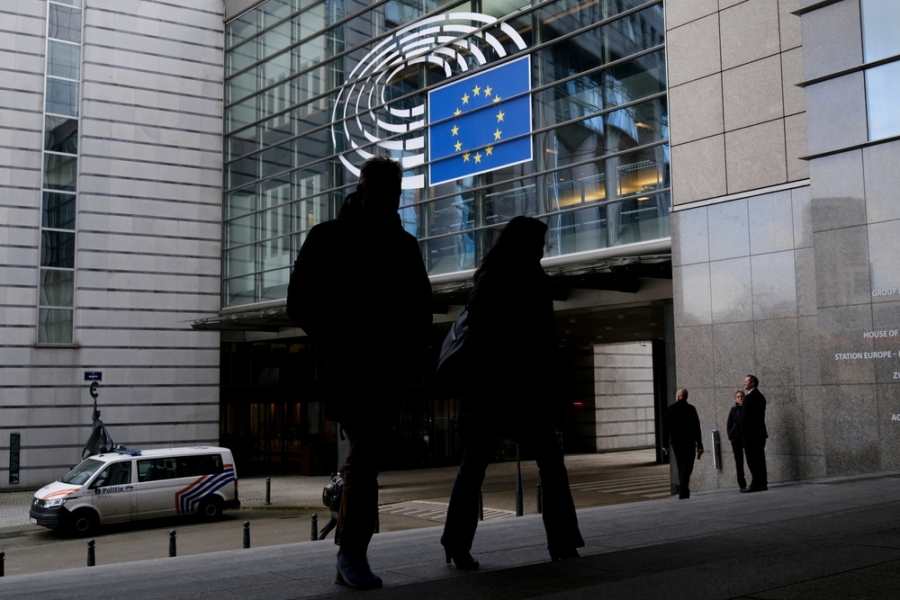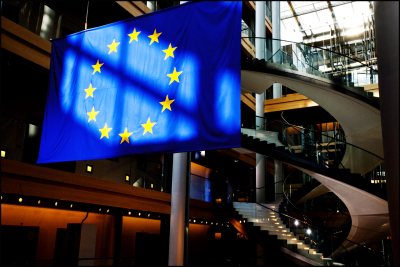You can read our full technical analysis of all reforms here.
One year ago, Belgian police uncovered 1.5m euros in cash stashed in, among other places, an MEP’s suitcase. What proceeded to unfold was the biggest corruption scandal ever to have hit the walls of the European Parliament, revealing an extensive cash-for-influence scheme that connected MEPs with the third countries seeking to influence Parliament’s policymaking process.
You’d be forgiven for thinking that this scandal, which has damaged citizen trust ahead of an election where the far right looms, would prompt European policymakers to adopt wholesale change to the Parliament’s ethics system. And when Parliament’s president Roberta Metsola announced a 14-point plan to address these integrity issues, you’d be forgiven for thinking that MEPs meant it.
Yet despite numerous junctions at which said MEPs could have voted for meaningful reform by supporting ambitious amendments in a vote on changes to their own internal rules, the European Parliament one year after Qatargate remains a democratic legislative body with a weak ethics system that is open to undue influence.
In fact, not only have President Metsola’s 14 objectives not been fulfilled, but MEPs have—incredulously—chosen to water down the existing rules to which they were bound in the first place. The President pledged to ban parliamentary friendship groups that connect MEPs with third countries. MEPs have not done so. A functional and deterrent sanctioning system has still not been implemented, as evidenced by our research that showed that 67% of travel declarations submitted post-Qatargate were submitted late—without penalty. And MEPs have chosen to weaken the income disclosure rules governing their declarations of financial interests. MEPs will now not have to declare any side income below a threshold of 5000 euros per year, when they had previously been required to declare all of their regular side activities, no matter their income.
MEPs are still allowed to perform any number of paid or unpaid side activities alongside their mandates. It’s perfectly possible for an MEP to receive legal fees on advising clients on EU data protection laws, or to sit on the data protection board of a telecommunications firm, all while legislating on data protection in the European Parliament. In fact, we complained about this in June. MEPs had the opportunity to vote to ban side jobs for organisations on the EU’s lobby register—those organisations with a declared interest in influencing EU policy. But they voted against the rule change.
Nor has there been any movement on protecting whistleblowers within the EU institutions’ walls. Could MEP assistants or staff have noticed suspicious behaviour before the Qatargate scandal broke, but, with weak whistleblower protection regulations for EU staff, not felt comfortable reporting it? It is telling that whistleblower protection rules for EU staff are well below the standards in the EU’s own Whistleblower Protection Directive, which member states have now been required to adopt. The new rules adopted by the Parliament Bureau in November still do not raise to the standards in the Directive and do not protect vulnerable classifications of staff from retaliation, like MEP assistants.
If Qatargate has shown us anything, it’s that self-policing has never worked, and it’s not working now. The European institutions desperately need an independent oversight body with the power to investigate and sanction those that do not respect the rules. The ethics body proposed by the European Commission is far from such a tool.
MEPs must now be trusted to hold themselves to higher standards than the rules they voted to change, when past experience suggests they cannot. But there is another option: the political groups to which MEPs belong have the opportunity to reform their own internal rules, providing their members with stronger binding checks on behaviour. They should not let this opportunity go to waste.
One year on, and a culture of impunity remains in the European Parliament. Only root and branch reform of its ethics rules will prevent further scandals. But MEPs might have to wait until the next one breaks to find this out.






